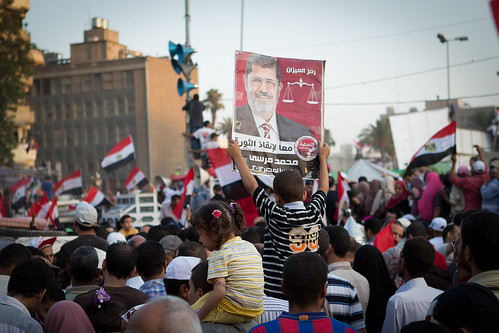
With the dawn of Egyptian nationalism in the late nineteenth century came a powerful slogan: “Egypt for Egyptians.” The phrase captured the anti-colonial sentiment that permeated the Egyptian streets for more than half a century, from the Urabi revolt of 1879–1882 to Gamal Abdel Nasser’s military coup in 1952.
In Tahrir Square last week, as with the start of the Arab Spring in 2011, the phrase was being used again, albeit with a significant alteration: “Egypt for All Egyptians.” This additional adjective conveys a widespread frustration with unrepresentative government—first directed against Mubarak, and now against Morsi.
While some consider Morsi’s overthrow last week to be a blow to democracy, others deem it a “democratic coup.” The reality is not quite as black or white: Egypt is forcing the world to re-examine the scope and limitation of concepts like “democracy,” “legitimacy,” and “coup.” And what started as a call for a more inclusive form of government in Egypt may yet produce the most divided Egypt the world has seen.
